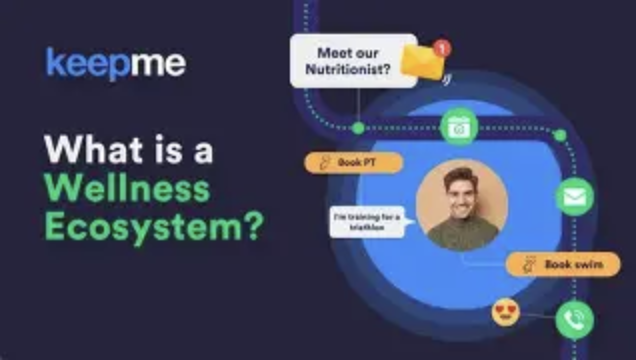Health Data Platforms: Trust AI With Your Body?
For wealthy individuals, health information means much more than just figures; it represents a valuable resource. The growth of AI-driven health services brings up an interesting question: Are you prepared to allow technology to shape your path to well-being, combining advanced science with personalized care?

The Curated Wellness Ecosystem
Wealthy individuals use AI health platforms that go beyond merely counting steps or monitoring heart rates; these systems collect and analyze a vast array of information, including genetic data, comprehensive body scans, and gut microbiome studies. Picture a system that compares your sleep patterns, recorded from a high-end mattress, with fluctuations in blood sugar levels after enjoying a meal prepared by a private chef, and then recommends an adjustment to your dinner's balance of carbohydrates and proteins. It can also identify slight variations, such as a 5% reduction in lung function detected by a smart inhaler, and arrange an immediate appointment with a pulmonologist who specializes in working with high-pressure professionals. Serving as unseen guides, these platforms sift through massive amounts of data to provide insights that may elude even the most skilled medical experts.

The Autonomy Paradox
Affluent individuals value their ability to make choices, but AI systems often excel when users relinquish some control. The most effective platforms strike a balance: they provide an "advisory mode" for everyday decisions (such as modifying vitamin intake based on travel plans) and highlight important choices that require human judgment. For instance, if AI identifies a concerning mole during a skin scan, it won't book surgery; instead, it will gather a list of the top three dermatologists in your area, including patient feedback from a trusted network of acquaintances. This combined approach honors personal independence while utilizing AI's efficiency—an essential factor, especially when delays in cancer diagnosis could lead to significant treatment costs or even loss of life.
The Privacy Fortress
For well-known individuals, data leaks pose serious dangers rather than mere nuisances. Leading health companies implement advanced encryption systems, keeping information on offline servers in highly secure places such as Switzerland or the Cayman Islands. Certain organizations utilize blockchain technology, enabling you to provide limited access—for instance, a cardiologist might have two days to examine heart-related information before their access expires. Unlike typical applications, they refrain from selling anonymized information to pharmaceutical companies; your medical details remain confidential, and you have the option to earn money by selling them to research firms.

The Longevity Investment
Health technology platforms that utilize AI should be seen as valuable investments instead of mere expenses, as they help to reduce the growing costs of healthcare. By identifying problems at an early stage, they can minimize the need for expensive treatments—saving about $10,000 a year can prevent costly emergency surgeries that could reach $500,000. For family trusts, these tools monitor health trends across generations, such as an increase in high blood pressure in family members during their 50s, allowing for early intervention for younger relatives. This proactive approach supports the idea of preserving generational wealth.
Additionally, AI in healthcare acts as a complement to human professionals rather than a replacement. For affluent individuals, these platforms offer a combination of precise algorithms, top-notch confidentiality, and efficient time management. Since health is regarded as a primary asset, the focus is on better resources rather than the idea of AI taking over.
(Writer:Lorik)





